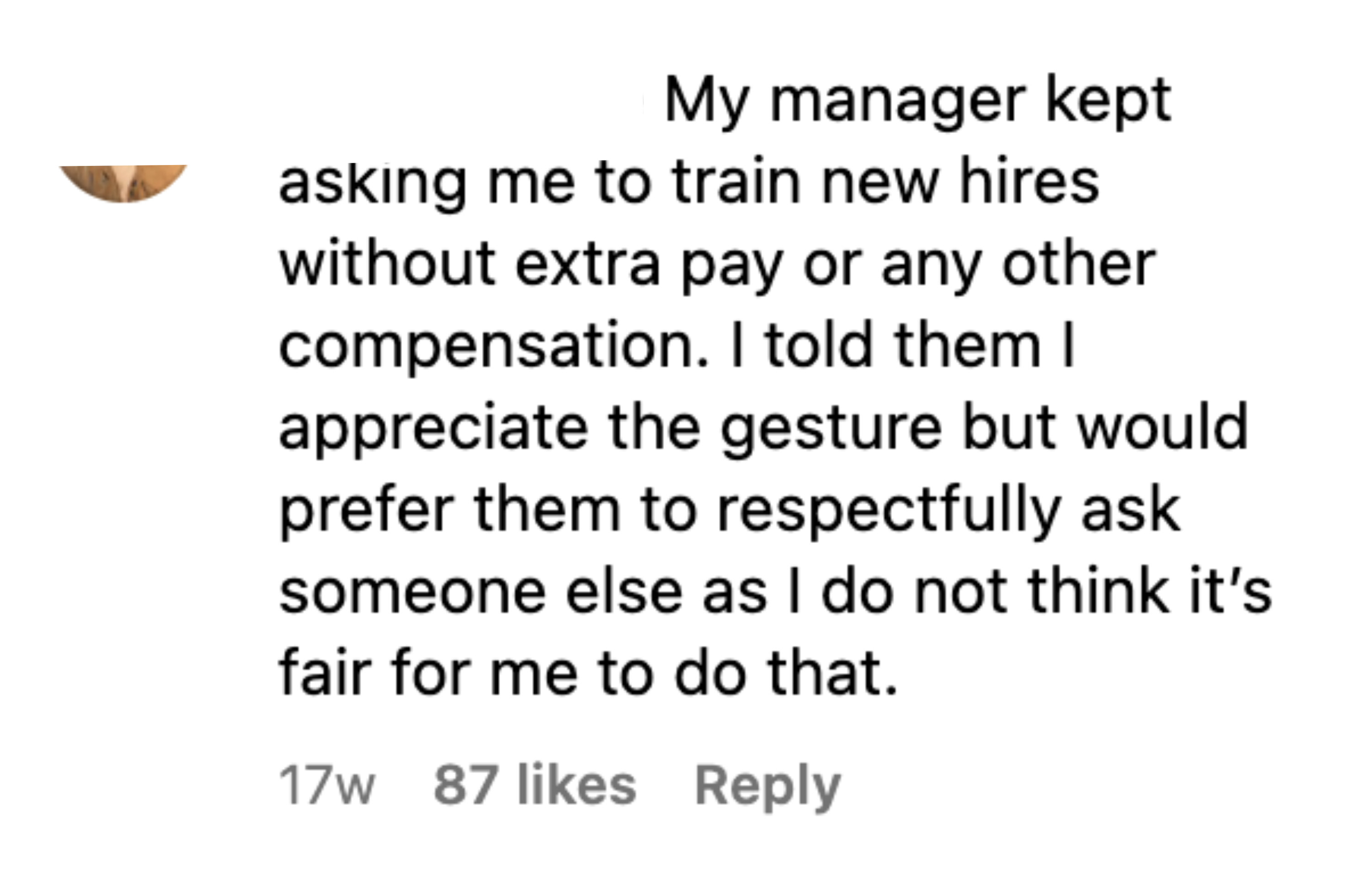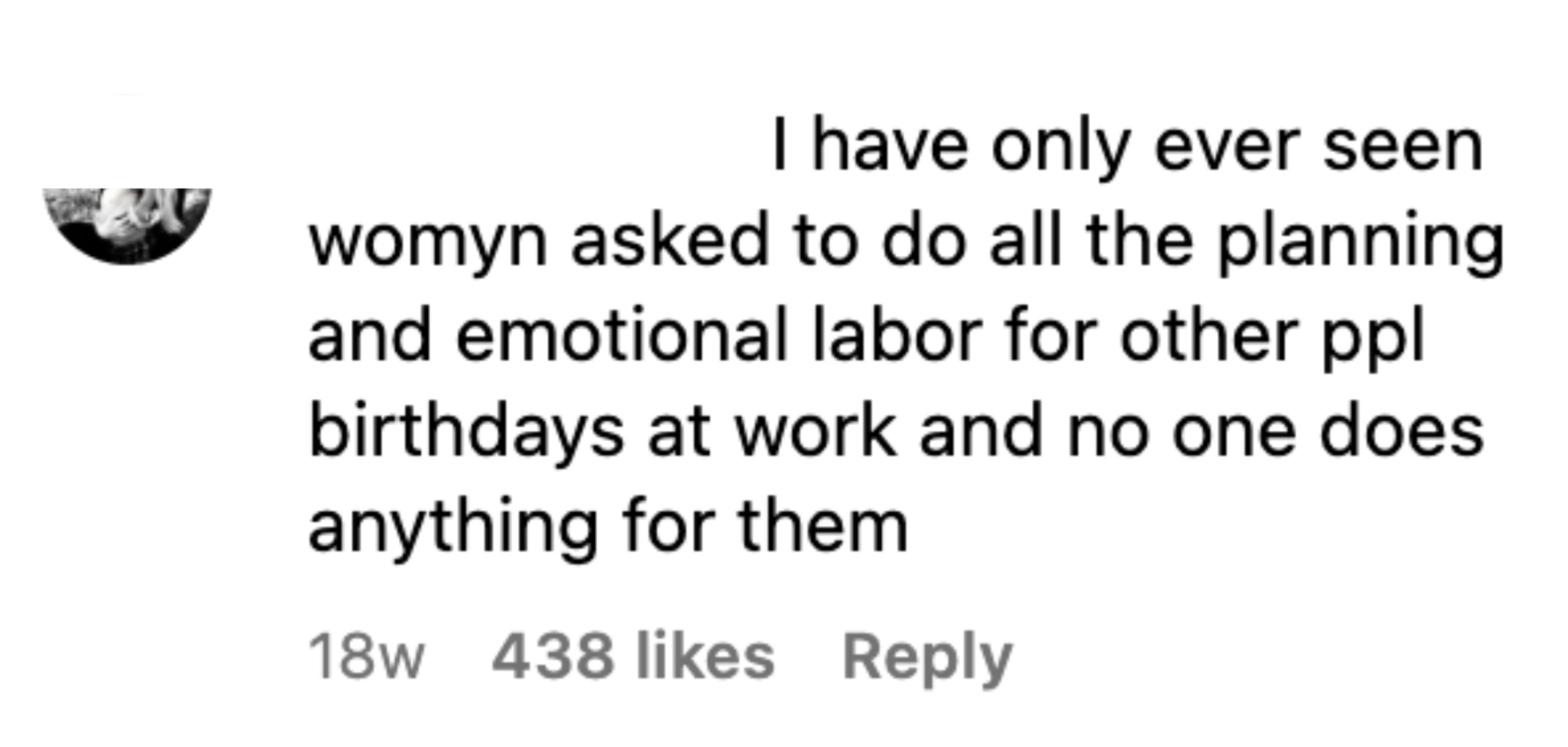" Have you ever been leash into a ' non - promotable labor ' ? It ’s something so far out of your job verbal description that you do n’t get pay to do — and that really does n’t help further your calling . "
When you get hired for a job, there may be a few times when you’re asked to do a thing or two outside of your job description. Unfortunately, this can sometimes get out of hand where certain employees — think: women and people of color — are asked more often than others to complete tasks that have nothing to do with the positions they were initially hired for.
Well, according to anInstagram ReelthatCandorposted not that long ago, these to-dos are called “non-promotable tasks.”
The video starts with a Candor team member explaining what exactly “non-promotable tasks” are. “Have you ever been roped into a non-promotable task? AKA something so far out of your job description that you don’t get paid to do, that really doesn’t help further your career?”
The person continues by saying: “I’m asking because I didn’t know I was doing so much non-promotable work in my career and it disproportionally affects women in the workplace and women of color. Go figure.”
Then, they go on by giving examples of what “non-promotable tasks” look like. “Here are some examples of non-promotable tasks I’ve been asked to do and my girlfriends have been asked to do as working professionals. Just take notes so you don’t get roped in so easily.”
The first example starts with: “Since you’re such a rockstar employee, we wanted to nominate you for the culture committee. You’d be planning one social per month for your entire team. No, it’s outside of work hours, but think of it as giving back to the community and giving back to your team. You can learn great leadership skills through this.”
Next, they begin the second example by saying, “You’d be a really good fit for this mentorship program we’re running. We have so many new hires that need a mentor, so you could just meet up with them on the weekends for coffee chats. It can be virtual as well — but it will be fun.”
And the final example is all about event planning: “You’re so good at event planning that I thought you could take over company birthday parties moving forward. All you gotta do is make the reservations and coordinate the birthday cake and gifts. That’s it.”
For instance, this person shared how their manager kept asking them to train people without discussing extra pay:
While another person shared how even when women do complete these tasks, they’re often not returned by others.
Since these “requests” seem to affect women and women of color more often, I decided to reach out to the CEO and founder of Candor,Kelsey Bishop, to find out why this happens, how to navigate it, and what to say when asked to complete one of these tasks in the future.
Kelsey explained to BuzzFeed that NPTs can have an extreme impact on WOC and women due to unconscious bias. “Data has shown that women are requested more often than men for NPTs and have a higher tendency to say ‘yes’ because they have been expected to do so.” This is because “historically, women and WOC have always been assigned domestic responsibilities, ensuring household and caregiving needs are met,” Kelsey adds.
But just because women were “expected” to take on office maintenance, admin duties, and culture-related tasks in the past doesn’t mean they should today. In fact, Kelsey said that even though NPTs exist to keep the day-to-day operations of a company running smoothly — everything from team culture and relationships to paperwork and necessary administrative tasks — and employees happy, someone should be hired for a specific role to take on these tasks instead.
But let’s say the company is unable to hire a dedicated admin person and you no longer want to be the point person for these tasks. Kelsey suggests taking the first step and starting a conversation with your manager to “share what’s already on your plate and how those tasks move the needle of your role more than the NPTs,” she said.
you’re able to also use the conversation as a productive brainwave . " While you might not have the bandwidth for these undertaking , perhaps you could help draft a line of work verbal description for an office coach or admin . Or perhaps the team could rotate the responsibilities so that the same person does n’t get tasked with the NPTs every clock time , " she added .
Although Kelsey completely understands that having an open conversation with your manager about non-promotable tasks can be tough — especially when it’s assumed that these tasks can possibly aid in getting a promotion — she said this is even more of a reason to bring it up.
By asking for feedback, Kelsey said this can signal to your manager that you’re looking for growth opportunities. And if your manager listens to your concerns and becomes aware (and acknowledges) of how NPTs can limit opportunities for WOC and women to showcase their skills and pursue their desired career trajectories, hopefully, they will encourage a work culture that not only stops higher up from expecting women to take on NPTs but also start promoting them as well.
If you want to learn more from Candor and Kelsey, give Candor a follow onInstagramor check out theirwebsite.
So, what do you think about this topic? Do you relate to any of the situations above? If so, tell us your thoughts on the subject matter below.












